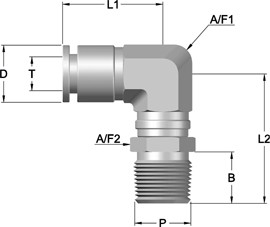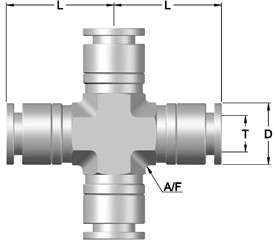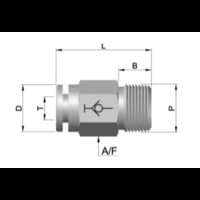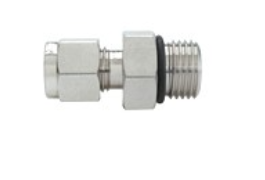
PIF Checker: Make Product Validation Easy
October 18, 2024Dependability is crucial in the field of commercial and industrial plumbing. The quality of your pipe connections is essential whether you’re working with high-pressure systems, corrosive conditions, or extremely high or low temperatures. This is where the union coupling shines. The union coupling is a sturdy part of any plumbing system that is made to endure the demands of demanding applications, guaranteeing dependable and leak-free operation.
What is a Union Coupling?
Fundamentally, a union coupling is a mechanical mechanism that enables two pipes to be disconnected and reconnected without requiring significant disassembly. There are three primary components to it:
- The male end: This typically has a threaded end that screws into one of the pipes.
- The female end: This part features an internal thread that receives the male end.
- The nut: This part keeps the male and female ends together.
Competing flexibility and ease of maintenance are offered by this straightforward yet brilliant design.
When it Comes to Demanding Applications, Why Choose Union Couplings?
- Versatility: Union couplings may be used with a variety of pipe systems since they come in a large range of sizes and materials. There is a union coupling to meet your demands whether you’re working with copper, steel, or plastic pipes.
- Ease of Installation and Maintenance: The simplicity of installation of union couplings or union ball joints is one of their biggest benefits. They save downtime and labour expenses since they are simple to install and disassemble. This adaptability is crucial for system updates, maintenance, and repairs.
- Leak-Proof Performance: Union couplings offer a safe and leak-proof connection when connected correctly. This is essential in applications like high-pressure systems and those handling dangerous materials where leaks might have major consequences.
- Durability and Longevity: To ensure their durability and lifespan, union couplings are usually made of premium materials like cast iron, stainless steel, or brass. They are perfect for demanding applications because of their ability to tolerate high pressures, extremely high temperatures, and vibration.
- Vibration and Shock Resistance: Union couplings provide exceptional resistance to vibration and shock in settings that are susceptible to these forces, such as industrial machinery. Leaks are avoided, and the pipe system’s ongoing integrity is guaranteed.
- Corrosion Resistance: Materials like bronze or stainless steel that are resistant to corrosion can be used to make union couplings, depending on the application. In settings where corrosion might erode the connection and cause leaks, this is crucial.
Uses of Union Couplings in Demanding Situations:
- Industrial Plants: Union couplings have extensive application in industrial environments, such as manufacturing facilities, refineries, and chemical processing plants. In order to link pipes that handle high-temperature fluids, high-pressure gases, and corrosive chemicals, they are necessary.
- Commercial Buildings: Union couplings find positions in a number of commercial building applications, including plumbing networks, fire sprinkler systems, and HVAC systems. These key components benefit from their flexibility and ease of maintenance.
- Marine Applications: Union couplings are frequently used in maritime work settings, where they must endure the continual motion of the vessel and the corrosive effects of seawater.
- Oil and Gas Industry: Union couplings are essential for joining pipes and equipment in the oil and gas sector. While maintaining leak-free operation, they must be able to tolerate high pressures and extremely high temperatures.
Choosing the Right Union Coupling:
Selecting the appropriate union coupling for your specific application is critical. Factors to consider include:
- Pipe size and material
- Operating pressure and temperature
- Environmental conditions (e.g., corrosion, vibration)
- Flow rate
Selecting the ideal union coupling for your requirements might be helped by speaking with a certified engineer or plumber.
Conclusion:
The union coupling is an essential part of many commercial and industrial applications, to sum up. Both engineers and contractors choose it due to its adaptability, simplicity of installation, and outstanding performance in challenging settings. You can build sturdy and dependable pipe systems that will last for many years by choosing the right union connection and making sure it is installed correctly.



